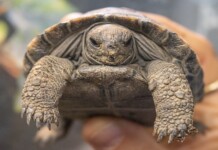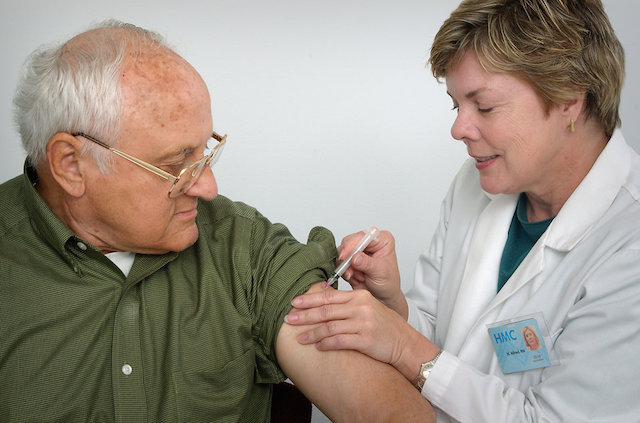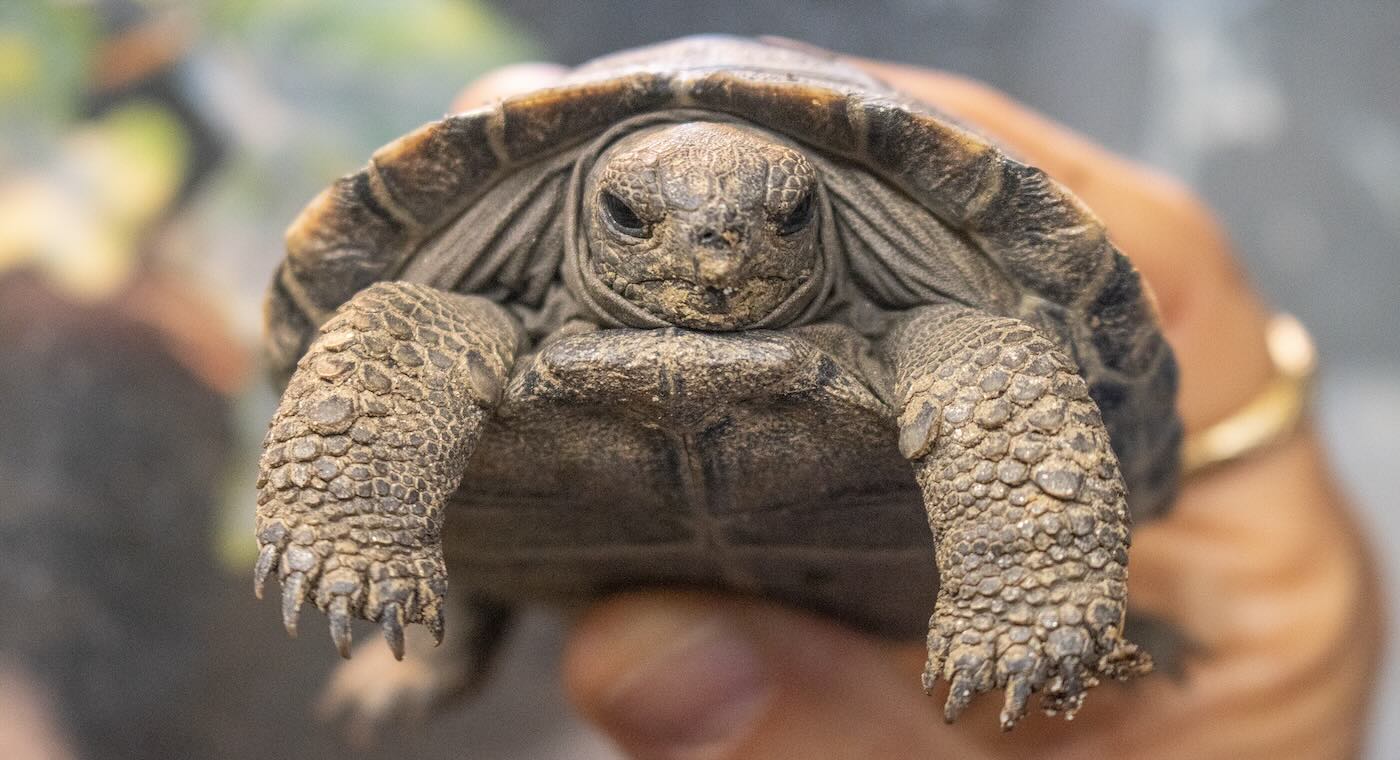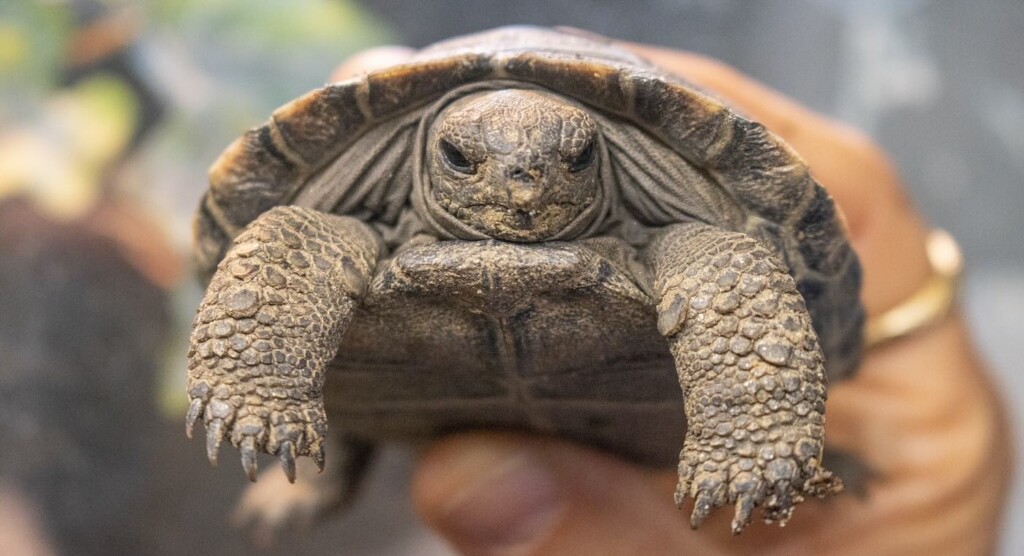
The Philadelphia Zoo is overjoyed to announce the hatching of four critically endangered Galapagos tortoises for the first time in the Zoo’s 150 year history.
The parents, Western Santa Cruz tortoises, are the Zoo’s two oldest residents, each estimated to be around 100 years old.
Additionally, the female named Mommy is considered one of the most genetically valuable of her species in the Survival Plan of the Association of Zoos and Aquariums (AZA). She is also the oldest first-time mom of her species.
The hatchlings are currently eating and growing normally “behind-the-scenes” inside the Reptile and Amphibian House. The first one hatched on February 27 and the animal care team is still monitoring more eggs that could hatch in the coming weeks.
They will make their public debut on April 23, which is the 93rd anniversary of Mommy’s arrival at the Zoo.
The babies are part of the AZA breeding program to ensure the survival of this species, which are listed as “critically endangered”.
The last clutch of Western Santa Cruz tortoises to hatch in an AZA accredited zoo was in 2019 at Riverbanks Zoo in South Carolina. Other zoos with breeding pairs of this species include San Diego Zoo, Zoo Miami and Honolulu Zoo.
GREAT GALAPAGOS NEWS: 500 Giant Tortoises Reintroduced to Four Galapagos Islands
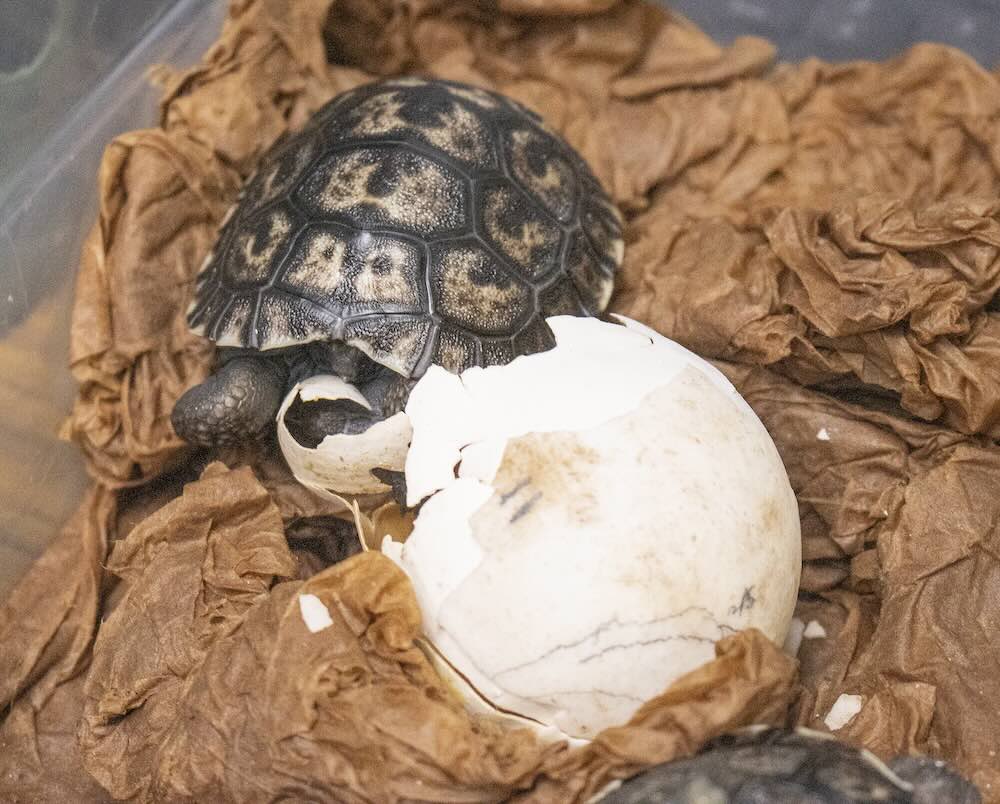
“This successful outcome comes from years of hard work studying animal behavior and providing top-level care. Until now, Mommy’s genes were not represented in the AZA population, making these offspring extremely important in the protection of this species,” said Philadelphia Zoo Director of Herpetology Lauren Augustine.
The animal care team worked diligently to provide the right conditions for Mommy to lay her eggs and for them to incubate and successfully hatch
In December 2020, the father of the new hatchlings, Abrazzo, came to the Zoo on a breeding recommendation from Riverbanks Zoo in South Carolina. New substrate was purchased—nesting material like sand and soil for Mommy to lay her eggs in—Abrazzo’s behaviors were studied to see how he spent his time. Since 2023, Mommy has laid a total of four clutches of eggs, but the three prior tries did not result in viable eggs.
OTHER ANIMALS ARE SURVIVING TOO:
• Galápagos Rail Rediscovered After 190 Years Following Island Restoration
• Baby Galápagos Pink Iguanas Seen for the First Time Ever—Offering So Much Hope to Scientists
• Galapagos Penguin, One of the World’s Rarest, Sees a Glimmer of Hope
(Watch a video of the hatchlings—and continue reading below…)
After Mommy laid her 16 eggs in November 2024, the reptile and amphibian team dug them up to incubate them–expecting the eggs to hatch between four and eight months later.
The hatchlings will remain at the Zoo for at least five years.
Officials will then work with the AZA to determine when and if the hatchlings will move to different facilities. Prior to their arrival, there were only 44 individual Western Santa Cruz Giant tortoises in all U.S. zoos combined, so these newest additions represent a new genetic lineage and some much-needed help to the species’ population.
At one point, each of the Galapagos Islands had its own unique subspecies of tortoise (with the ability to live between 100-200 years)‚ but sadly, several of them are now extinct, although scientists estimate there are currently 13 living species that are native to seven of the islands.
“Hatched in the wild, Mommy arrived at the Zoo in 1932, meaning anyone that has visited the Zoo for the last 92 years has likely seen her,” said Philadelphia Zoo President Dr. Jo-Elle Mogerman.
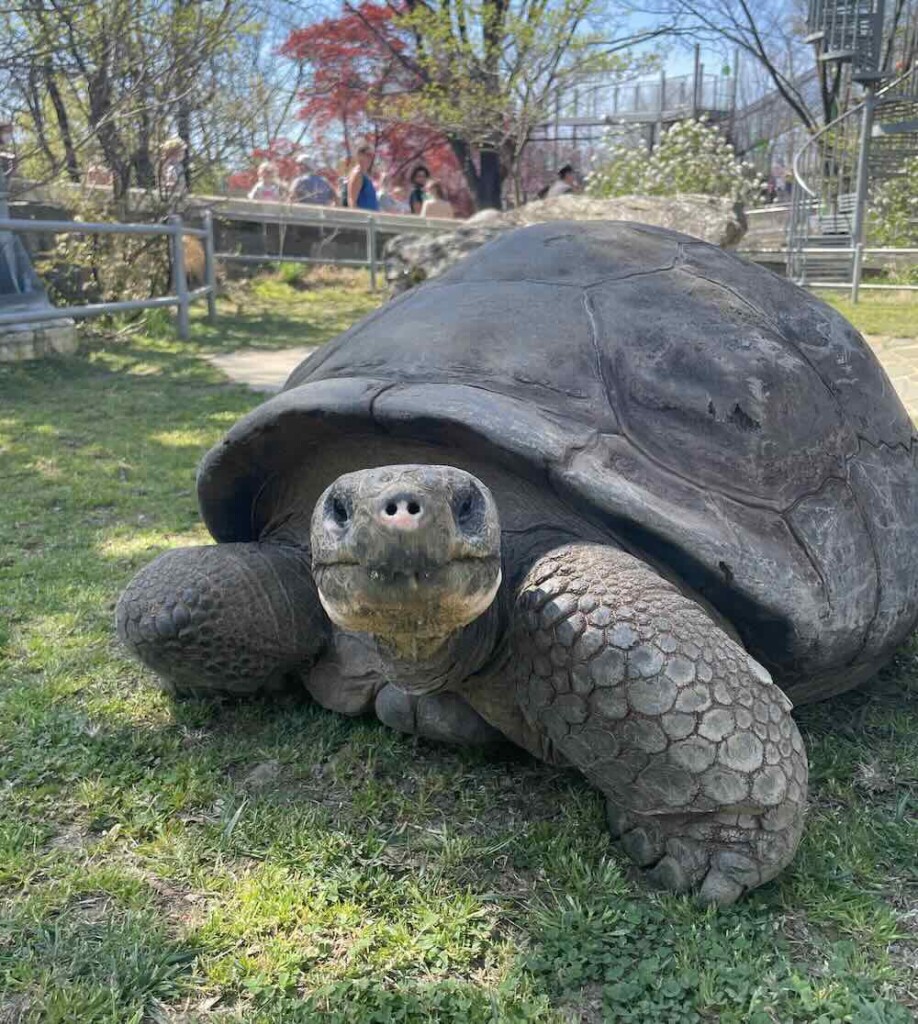
“Philadelphia Zoo’s vision is that those hatchlings will be a part of a thriving population of Galapagos tortoises on our healthy planet 100 years from now.”
“These hatchlings not only protect this species from extinction, but serve as important ambassadors to inspire guests to save wildlife and wild places,” said Philadelphia Zoo Vice President of Animal Well-Being and Conservation Rachel Metz.
SHARE THE GIANT NEWS With Animal Lovers on Social Media…



